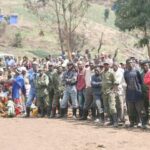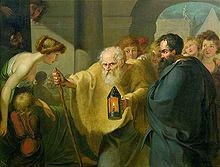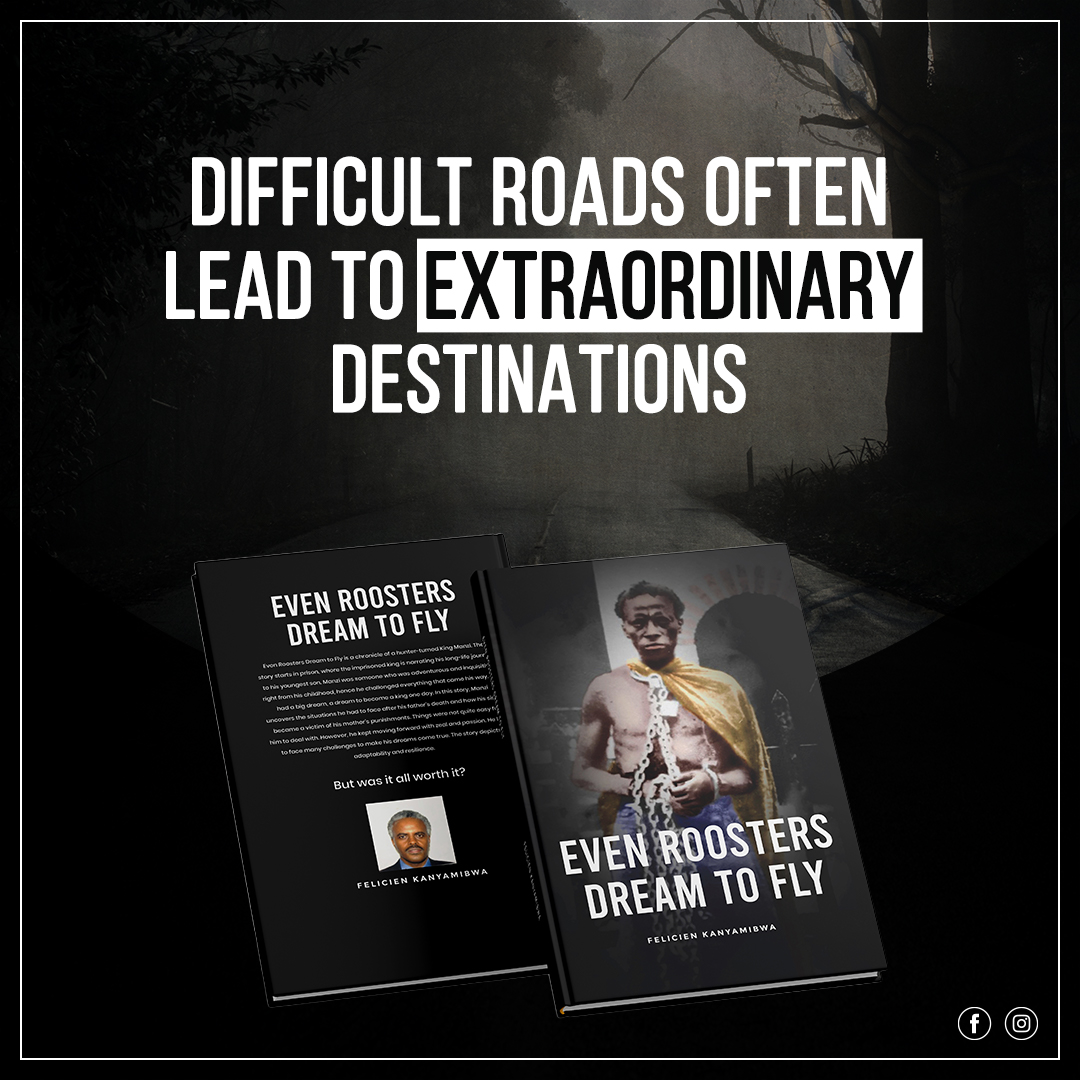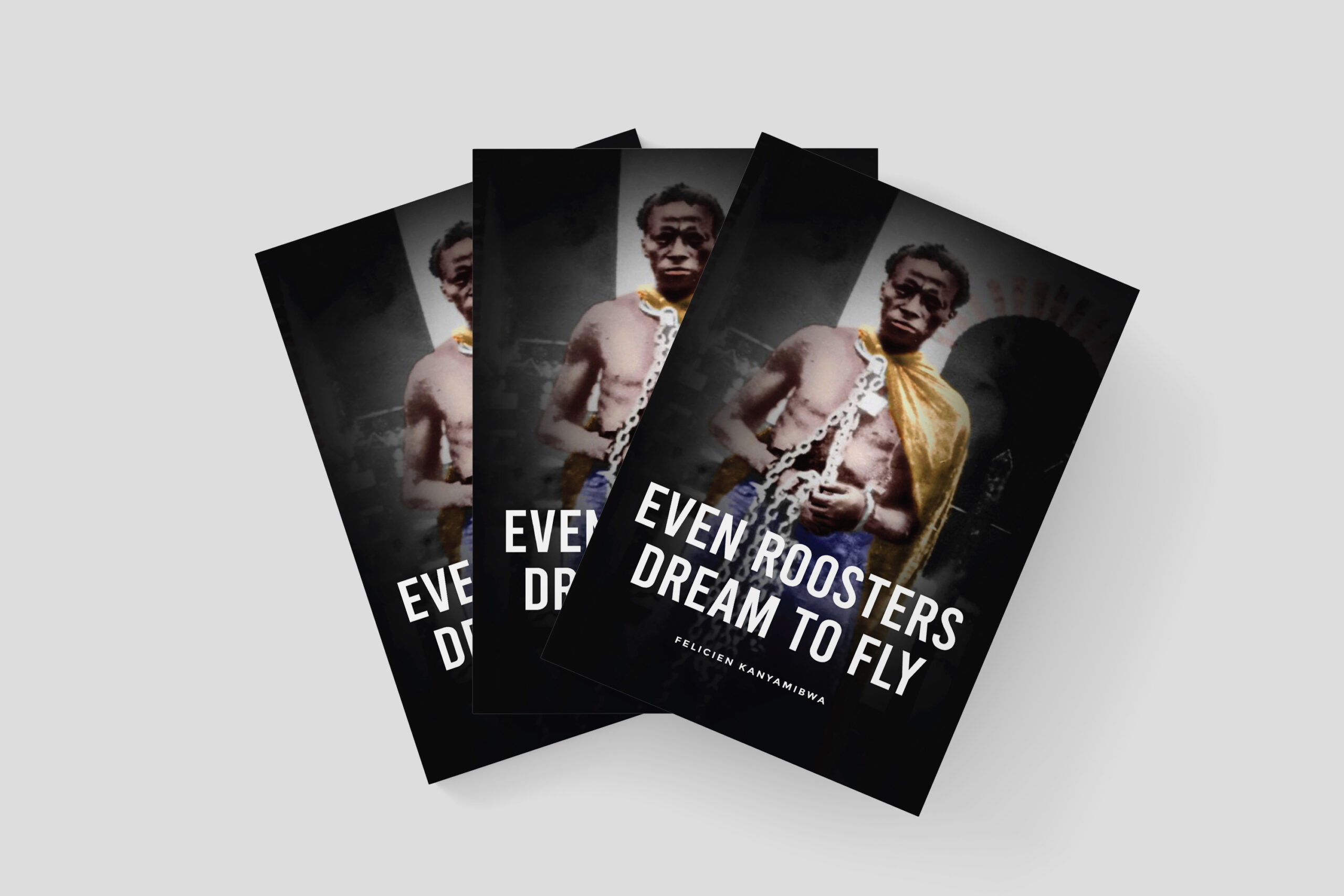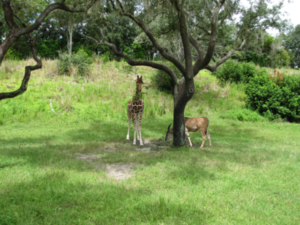 Painting: Diogenes searches for an honest man. Painting attributed to J.H.W Tischbein
Painting: Diogenes searches for an honest man. Painting attributed to J.H.W Tischbein
Here it goes again. Another discourse about Paul Kagame, the self styled President of Rwanda. Today I will call him President, not the Dictator, not the Tyrant, not the General President, just the President. Why? Because today’s discourse is not really mine. It is a friend’s. Why? would you ask! Because recently I had a very good conversation with a close friend of mine, a Hutu, one of the most radical critics of and leaders of an opposition to Paul Kagame’s. I asked him a simple question: Suppose you were to be the advocate of Kagame. How would you make his case, in a short and concise discourse?
He looked me in the eyes, like I had grown two horns, kept silent for a good minute, which seemed an eternity, and then said: “you know what? I never thought about that. Actually, I can make a good case for Paul Kagame. It is always easy to make a good case for a worthy opponent.”
Following is the case he made. It is up to you, the readers to judge whether the case is made. Enjoy!
Kagame as a leader follows what history has taught humankind about power.
Lucius Furius Camilius, an heroic Roman general of the first Samnite War and a Consul of Rome in 339 BCE appeared in front of the Rome Senate and made a case in a discourse called “Quello che di dovesse fare,” which was really “On How to treat The Populace of Valdichiana after their rebellion.”
He said: “Senators! what needed to be done in Latium with armies and wars has, by grace of the gods and the skill of our soldiers, been done. Slaughtered are the enemies … All the lands and the cities … either were conquered or surrendered, and are now in your power. As they keep rebelling and putting Rome in peril, we must consult about how to secure ourselves, either by cruelty or by generously forgiving them… But what must be deliberated must be deliberated swiftly, as you have many peoples hovering between hope and fear. You must free these people from their uncertainty and anticipate their every action, either with punishment or reward. My task was to ensure than this decision would be yours, and my task has been done. It is now for you to decide what is for the benefit of our republic.”
Hence, I assume that in 2000-2002, Paul Kagame, as a general, had, in his mind, liberated Rwanda, slaughtered whoever represented a danger to the power he and his people wanted to impose, invaded Zaire/ Democratic Republic of the Congo, brought the Eastern Congo under his control, and subjugated the Burundian and Ugandan armies to constant fear and threat. After these actions he submitted the case to his inner circle and asked them what to do with the defeated enemies and conquered lands. Instead of receiving directions, he found himself surrounded by a spineless circle of cronies, courtiers and servile assistants. Instead of helping him decide on what to do, between punishing resilient enemies and rewarding surrendered subjects and lands, the Rwandan legislators, advisors, ministers, civil servants, and armies worshiped him and surrendered all power to him.
In the case of Lucius Furius Camilius, the Roman Senators took their responsibilities and allowed the general to assume his. In the case of Paul Kagame, the Rwandan elite surrendered their responsibilities to him. Hence, if Paul Kagame may be called dictator or tyrant, it is thanks to the weakness of his associates and collaborators. In fact, power vacuum cannot last for long. Left alone, someone or something will fill the vacuum, usually with unimaginable consequences. Most of the time that is how chaos, tyrannies, and totalitarian regimes are created.
Once Kagame had power, he had to keep it, hence exercise it.
In his Political Essays and Treatises, Machiaveli said: “The World has always been inhabited in the same way by men who have had the same passions: There have always been those who rule and those who serve, those who serve willingly and those who serve unwillingly, those who rebel and those who are punished.”
Hence, Paul Kagame’s main fault is not really that he repressed or tries to punish those who rebel. Once he was given power, he must exercise it. Under him he must have several types of people: proponents and opponents. Among the proponents, he has fanatics, supporters, apologists. Among supporters he has loyalists, forced supporters, opportunists, and occasional supporters. Among opponents, he also has opportunists, forced opponents, principled opponents, and anarchists.
We should not confuse here opponent and enemy. In fact, enemies may be found everywhere: among the proponents as well as as among opponents. According to Machiavelli, “Castruccio Castracani of Lucca put to death a citizen of Lucca who had been instrumental in his rise to greatness, When people said that he had done a bad thing in killing his old friend, he replied that they were wrong, as he had put to death a new enemy.”
I am not advocating killing people, but illustrating the fact that old friends may be potential new enemies, and that no one should be taken for granted. Hence, Paul Kagame has to be always all eyes, all years because in politics, enemies are everywhere. It is a lonely place there at the top of the pyramid!
Hence, the only people Paul Kagame must rely on are the loyalist supporters and the principled opponents. Because he knows he may count on loyalist supporters and he knows what the principled opponents want. The rest are like pawns that he may control by force, charism, reward, or punishment. And the only way to do that is to exercise the power he has.
Keep the face down, in order to rise the face up.
Once Paul Kagame exercises his power, he must feel that he is the best leader that ever existed. That is how he will do the best he can. Diogenes Laertius, a Greek philosopher was asked how he wanted to be buried. He responded: “On my face. Because soon enough after my death, everything will be turned upside down.”
That is the mentality that Paul Kagame has exhibited in his leadership: that, without him and his vision, things will not go well.
The truth though is that the World will do just fine, with or without anyone. But, leaders, more so presidents of countries, need to feel they are unique, and that, without them, the World could have been worse off. That is the only way they will be able to do the best they can. And Paul Kagame has proven to be good at that!
Felicien Kanyamibwa, PhD, MqBA.
©AfroAmerica Network. All Rights Reserved.





